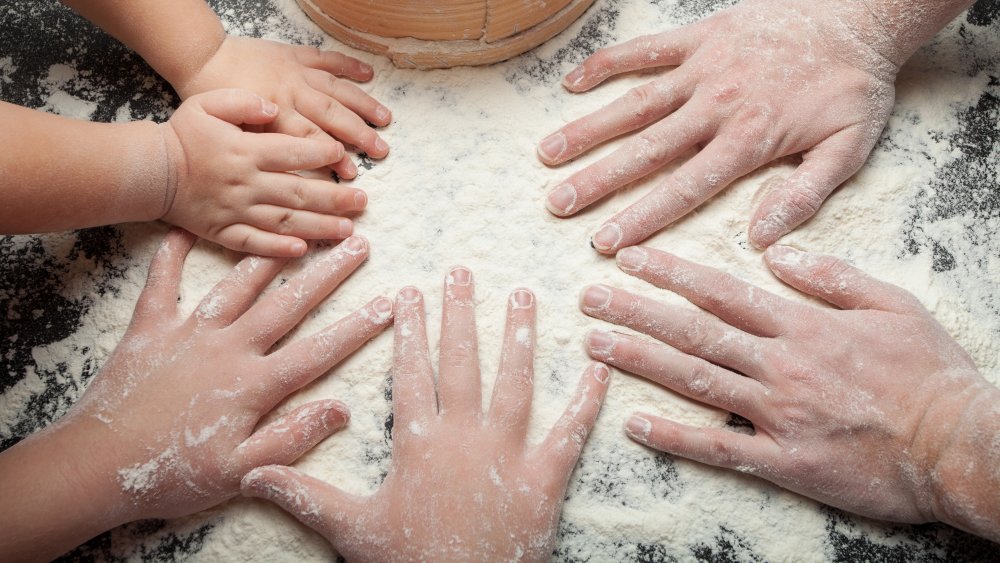How Grocery Stores Are Really Dealing With The Flour Demand
With many sequestered inside, a large number of people have taken up baking to pass the time. Whether it's making cookies, cakes, or bread, this carbohydrate fervor has led to baking staples becoming harder to find at grocery stores. Nielsen data shows that sales of yeast is up 457 percent and flour is up by 155 percent (via Observer-Reporter).
This popularity has led to supermarkets across the U.S. having to come up with a unique solution to meet consumer demands — they've started packing their own flour. According to NBC, grocery stores have been repackaging 50-pounds sacks, which are usually sold to industrial-sized bakeries, to make smaller 5-pound packages of flour which are more home baker-friendly.
National chains like Albertsons have given the green-light for stores to portion out the flour from their own supply in order to meet this baking frenzy. "It's a supply-and-demand issue that we're adapting to," said Albertsons Spokesman Andrew Whelan in a statement to NBC. Whelan explained that customers are buying bags as soon as they hit the shelf. "The response is finding supply for the same product in different formats or from different industries to keep up with demand that exceeds the traditional way of how the product is packaged and sold," he said.
Customers say they like the repackaging
Baking enthusiast Emma Chessen recently said she enjoyed receiving hand-packed flour from Whole Foods. "Cried when I found this flour especially cause it's packaged like it came from some old-timey Parisian bakery instead of the friendship heights whole foods," she tweeted.
Spokesperson for General Mills, Kelsey Roemhildt, said the coronavirus has caused a huge increase in the demand for flour. She explained that plants are running at full capacity to safely meet the needs of retailers and consumers. "The reality of the sizing is related to planned or available manufacturing," Roemhildt told NBC. "Manufacturing facilities who produce bulk items for away-from-home needs aren't seeing the same demand given shelter-in-place mandates."

